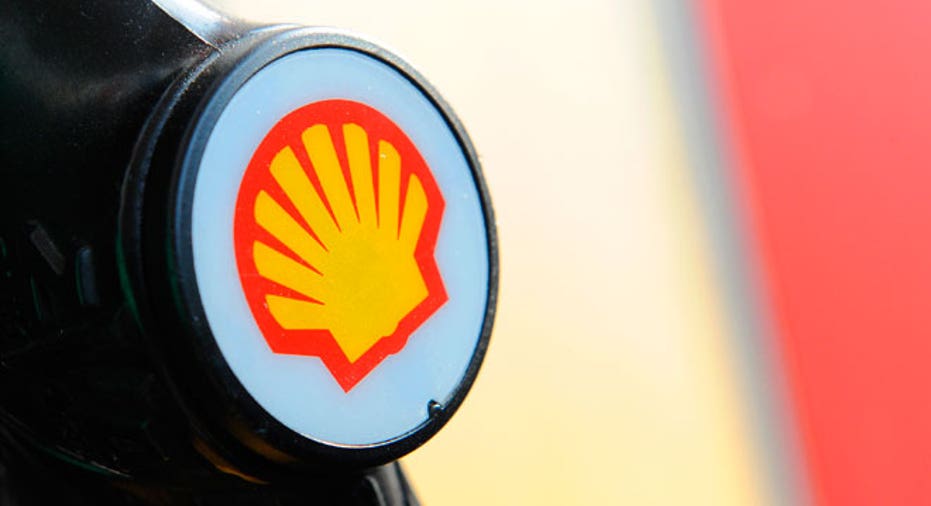U.S. Conditionally Approves Shell Arctic Drilling Plan

The U.S. government on Monday conditionally approved a plan by Royal Dutch Shell PLC to drill in the Arctic Ocean this summer, removing one of the biggest obstacles the energy company must overcome before it can explore for oil and natural gas in the Arctic's frigid, isolated waters.
The conditional approval from the Interior Department is contingent on Shell obtaining several additional federal permits, approvals Shell hopes government officials will make in the coming weeks.
"We'd like to see them sooner rather than later," Shell spokesman Curtis Smith said Monday. "We're moving assets and people as if we're going to achieve those permits. We have reason to believe we will."
Other obstacles, including continuing legal battles brought by environmental groups and an effort by Seattle officials to keep Shell from using the city's port to keep its drill ships, could delay Shell's plan.
Shell plans to invest $1 billion in its Arctic project this year, adding to the $6 billion the company has already spent on exploration drilling offshore Alaska in the past eight years. Its only successful drilling attempt since 2007 was hindered by bad weather and mechanical failures.
The region's cold climate provides a brief window--generally from July to October--when companies can drill safely given the icy conditions the rest of the year.
Shell is seeking approval to drill up to six exploratory wells in the U.S. portion of the Chukchi Sea, off the West Coast of Alaska between the U.S. and Russia.
An Interior Department official in a written statement said the approval came after an extensive review of the effect drilling could have on the region.
"We have taken a thoughtful approach to carefully considering potential exploration in the Chukchi Sea, recognizing the significant environmental, social and ecological resources in the region," said Abigail Ross Hopper, director of the Interior Department's Bureau of Ocean Energy Management. "Any offshore exploratory activities will continue to be subject to rigorous safety standards."
Environmental groups criticized the approval. "Our government has rushed to approve risky and ill-conceived exploration in one of the most remote and important places on Earth," said Susan Murray, a deputy vice president for Oceana, an environmental group. "Shell's need to validate its poorly planned investment in the U.S. Arctic Ocean is not a good reason for the government to allow the company to put our ocean resources at risk."
No energy company currently is drilling in the U.S. portion of the Arctic Ocean. Shell's Arctic plans are currently the company's largest, most high-profile and expensive exploration project.
ConocoPhillips and Statoil ASA also own leases in the Arctic, though neither company has immediate plans to drill there. Shell also owns leases in the Beaufort Sea, east of the Chukchi, though it doesn't have immediate plans to drill there.
According to Interior Department data released in 2011, the federal waters in the Beaufort and Chukchi seas off Alaska's coasts hold 22 billion barrels of technically recoverable oil and 93 trillion cubic feet of natural gas. The U.S. is currently producing about 9 million barrels of oil a day and about 90 billion cubic feet of gas a day.
After the technical issues that came up in 2007, Shell agreed to take additional steps aimed at safeguarding Arctic waters, including having available an additional rig that could drill a relief well--which can be used to stop the flow from the main well--in case the company loses control of a well. That requirement and several others were included in a regulation the Interior Department proposed in February governing future Arctic drilling.
In recent weeks, Shell has faced growing opposition to its plans to store its drilling ships in Seattle.
Seattle Mayor Ed Murray last week said the Port of Seattle would need a new permit before it could allow Shell's two drilling ships and associated tugboats to use the port. The port's five commissioners plan to meet Tuesday to discuss how to proceed, port spokesman Peter McGraw said.
Shell and Foss Maritime, the company leasing a Port of Seattle terminal for Shell's equipment, believe the permit is valid for the work, and the oil company plans to proceed with its plans, said Mr. Smith, the Shell spokesman. The company plans to bring one drill ship to the Port of Everett, a city north of Seattle, in the next few days, and plans to bring a second drill ship to the Port of Seattle, he said.
In the event the company is unable to use the Port of Seattle, it has other options and backup plans, Mr. Smith said, though he declined to elaborate.
(By Amy Harder and Cassandra Sweet)



















